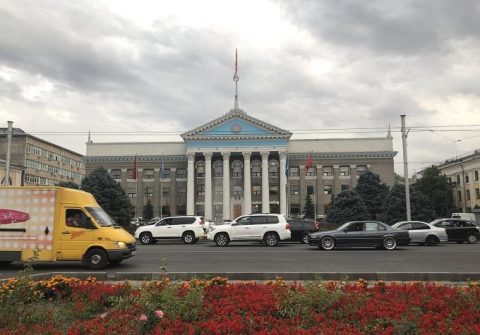Chinese Energy Expansion in Central Asia.

China is investing more and more in Central Asia, especially because of Russia’s weakened position, as the region’s historic economic partner. Beijing is realizing commercial projects in various strategic sectors, primarily in the energy sector with investments
in Uzbekistan and Kyrgyzstan.
In recent years, China has increasingly deepened trade relations with Central Asia, carrying out various projects with the five countries in the area. In 2023, according to official statistics, China overtook the Russian Federation as the region’s main trading partner, thanks to the signing of numerous trade agreements and the strengthening of logistics links
with local countries.

Railway. In Kazakhstan, Beijing has overtaken Moscow in annual trade. Pixabay
Among these, “Kazakhstan is the last […] to see Beijing surpass Moscow in terms of annual trade turnover,” according to the Kazakh National Institute of Statistics. In the country, China is carrying out projects of various kinds: for example, a Chinese company is implementing a project worth over $200 million to build a cement plant.
Furthermore, a plan of over 100 million euros is being considered to build a large hospital with 600 beds, in the central area of the country. In particular, however, China is focusing more and more on energy diplomacy: in Kazakhstan, it has proposed to build the country’s first nuclear power plant.
Ambitious projects in Uzbekistan
In Uzbekistan, a Chinese company intends to promote the development of solar energy in the country through the creation of training programs for Uzbek workers to collaboratively build infrastructure.
However, the main Chinese-led growth sector is that of electric cars: as The Diplomat Magazine observes, more than 90% of electric vehicles sold in 2022 come from China.
In the first 10 months of 2023, Beijing exported more than 20,000 electric vehicles to Uzbekistan, a number expected to rise due to agreements between Chinese companies and the Ministry of Energy.

Uzbekistan. The government has encouraged the purchase of electric cars. Shutterstock/BT image
Since 2019, Uzbekistan has been strongly supporting this market through economic incentives and tax breaks to encourage the purchase of electric cars. With support from the Government, demand has increased significantly in the last two years, parallelly with the construction of the infrastructure necessary for this technology, such as charging stations. In 2022, 36 charging stations were built and in December it was decided to increase the number to 2,500 by the end of this year. In 2023, private businesses gained the right to sell electricity at independent prices, and as of January 1, 2024, many hotels, shopping centres and motorway service stations were forced to build electric charging stations. In addition to Government support, the market is growing above all thanks to Chinese investments: the Chinese brand BYD, which is increasingly spreading on Uzbek streets, has opened a production plant in collaboration with a local brand, Uzavtosanoat. Although the growing market appears to be driven by increasing consumer demand, the development of the sector depends on the implementation of reforms in the energy sector.
Electric cars in Kyrgyzstan
Chinese brands also dominate electric vehicle production in Kyrgyzstan: in the first eight months of 2023, Kyrgyzstan had imported more than 4,000 electric vehicles from China, almost 6 times more than in the same period in 2022. However, this growing market is not based on growing demand from the population, as is the case in Uzbekistan: only 30 charging stations have been built in Kyrgyzstan, most of which are located in Bishkek, the capital.

City Hall, Bishkek. The majority of Chinese electric vehicle imports into Kyrgyzstan are destined for export to Russia. CC BY-SA 4.0/ Davide Mauro
The lack of infrastructure dedicated to electric vehicles, such as charging stations and service stations, combined with the energy deficit affecting the country, blocks the development of demand among the population. As a result, the majority of Chinese electric vehicle imports into Kyrgyzstan are destined for export to Russia. Chinese electric cars have a series of advantages over their Western counterparts, such as geographical proximity and advantageous import prices. Also, Kyrgyzstan is a convenient market for re-exports to Russia thanks
to lower taxation.(Illustration: 123rf)
Irene Quaglia/CgP



